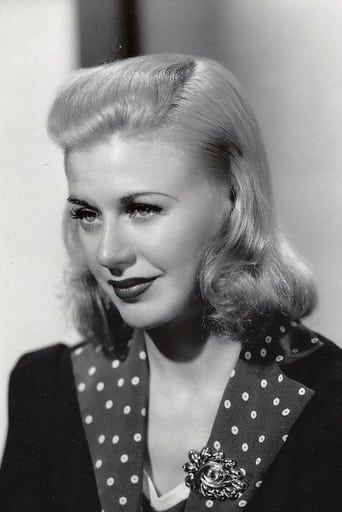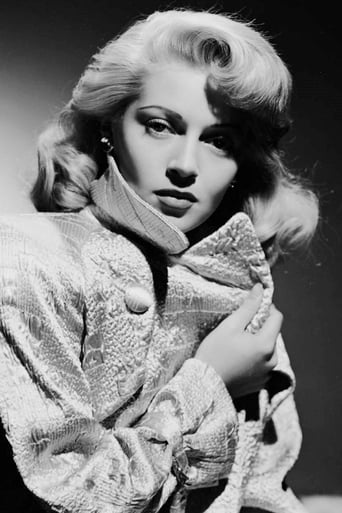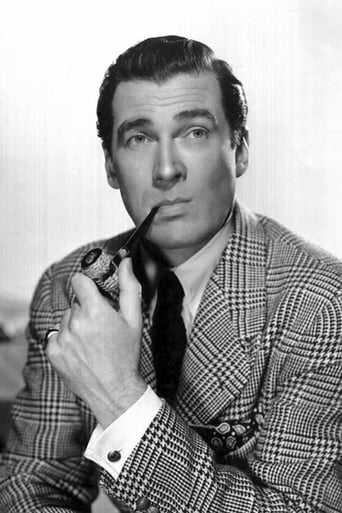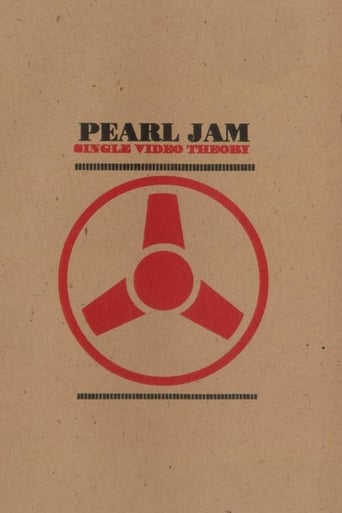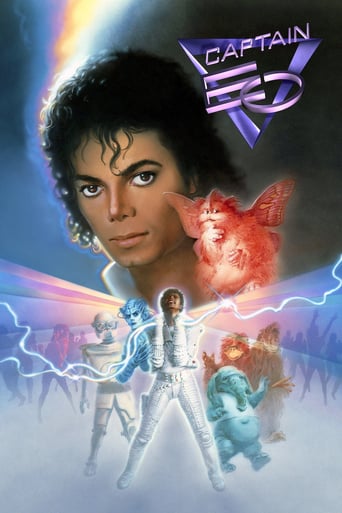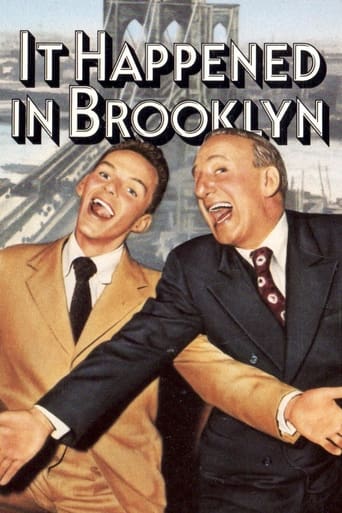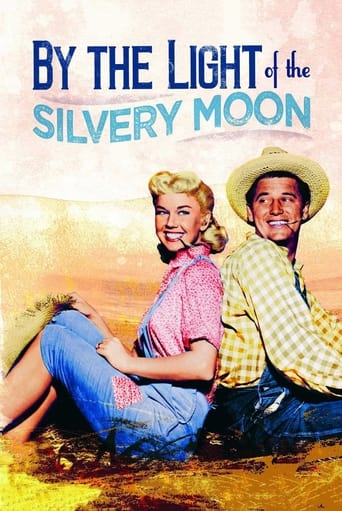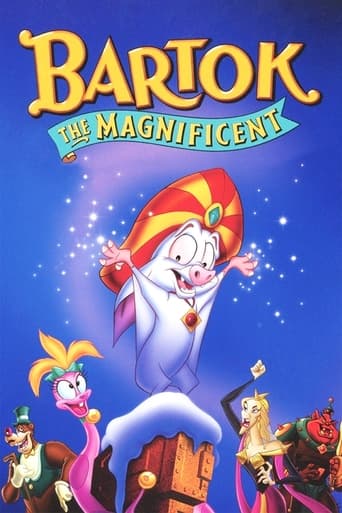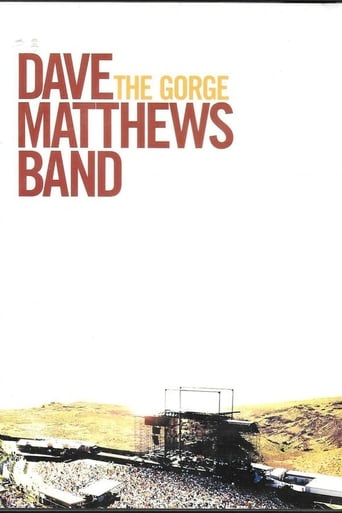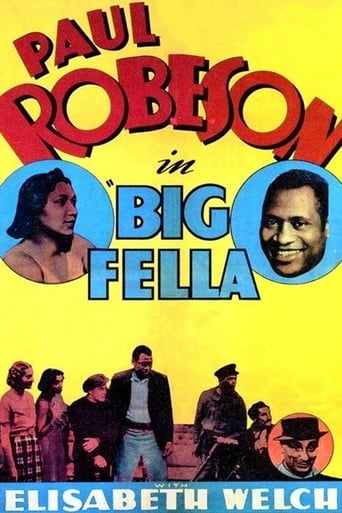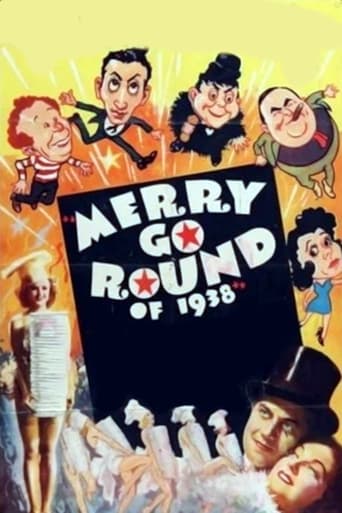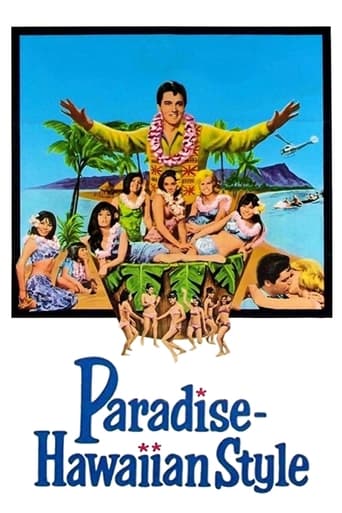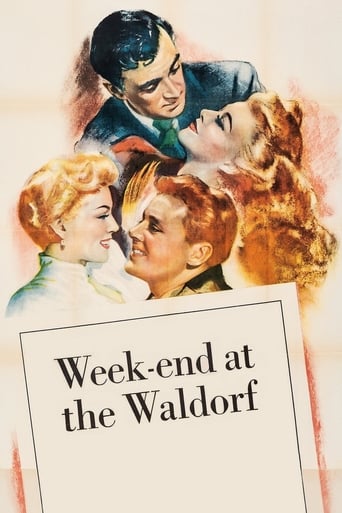
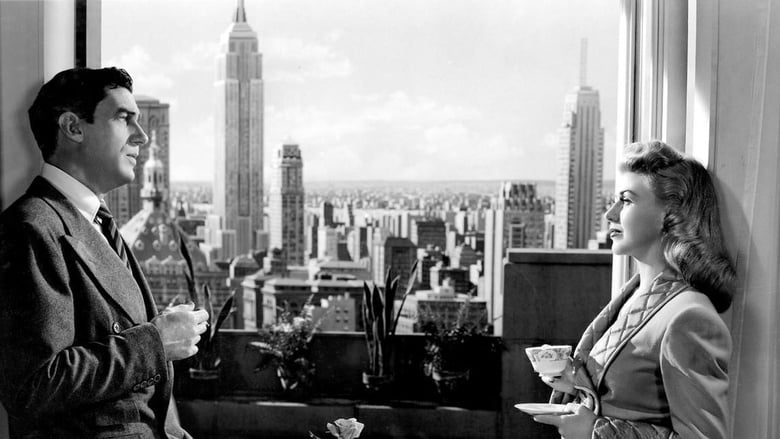
Week-End at the Waldorf (1945)
Anything can happen during a weekend at New York's Waldorf-Astoria: a glamorous movie star meets a world-weary war correspondent and mistakes him for a jewel thief; a soldier learns that without an operation he'll die and so looks for one last romance with a beautiful but ambitious stenographer; a cub reporter tries to get the goods on a shady man's dealing with a foreign potentate.
Watch Trailer
Cast


Similar titles
Reviews
That was an excellent one.
The first must-see film of the year.
Blistering performances.
This film is so real. It treats its characters with so much care and sensitivity.
Pleasant reworking of Grand Hotel changes most of what made that film a classic but is entertaining enough on its own. For starters, the tone to this one is far different than Grand Hotel. This is a lighter film with more focus on romance and humor. The setting is changed as well as it is updated to WW2 America. The war figures heavily into several of the story lines. As with Grand Hotel, this is about various characters staying at a plush hotel and how their stories intertwine. The hotel here is the Waldorf-Astoria in New York. Most of the plots have been altered from the original but certain characteristics remain. Ginger Rogers plays a weary actress who falls for equally weary war correspondent Walter Pidgeon, believing him to be a jewel thief. Lana Turner is a stenographer who ponders boss Edward Arnold's "indecent proposal" while falling for bomber pilot Van Johnson. Other actors include Robert Benchley, George Zucco, Keenan Wynn, Samuel S. Hinds, and Leon Ames. Xavier Cugat plays himself and provides a little music. It's all watchable enough and even enjoyable, especially if you aren't nagged by comparisons to Grand Hotel. The cast is nice (except for an overacting Rosemary DeCamp) and the MGM production is classy as you might expect. It won't change your life but I highly doubt you'll regret watching it.
In my opinion, one of the best romantic comedies that ever was made is "Weekend at the Waldorf." This 1945 film has dramatic overtones and a cast worth pots of gold.The movie is so good because the plots don't stop getting twisted. It's basically the story of 2 women finding romance and love at the famous hotel.When stenographer, a sweet and pert Lana Turner, finds love with GI Van Johnson, who is facing an operation, she has the opportunity to break out of her 10th Avenue existence, by working for Edward Arnold, in his usual craft role; this time as the phony executive trying to pull a deal with Arabs.Secondly, we have Hollywood star, Malvern, played to the hilt by Ginger Rogers, who is lonely. She finds romance with war correspondent, Walter Pidgeon, a great guy with some designs of his own.Notice Rosemary De Camp's authentic European accent in the film. An absolute gem of a film which shouldn't be missed. The film trumpets a bygone era.
All star redo of "Grand Hotel". Ginger Roger plays Irene Malvern an unhappy actress; Walter Pidgeon plays Chip Collyer a war correspondent; Lana Turner plays Bunny Smith a beautiful stenographer; Van Johnson plays Captain James Hollis a dying officer; Edward Arnold plays Martin Edley a crooked businessman; Keenan Wynn plays Oliver Webson a report and Robert Benchley plays a columnist (clever). They're all working or are staying at the Waldorf--a very exclusive hotel in New York and their lives interact with each other.I usually love all star movies like this but this one was just plain dull. It was made with the usual MGM gloss but the characters and stories were just not interesting. Scenes are dragged out to a ridiculous degree and the movie is far too long. It doesn't help that every single story is totally predictable. The acting is pretty good so that helps and there is a nice song ("And There You Are") but I was basically just bored and fast forwarded through most of the last hour. This gets a 6 for the acting and production values but I really can't recommend this.
This is my favorite wartime satire-comedy for three reasons. One is the towering performance by Walter Pigeon as the war correspondent Chip Collyer who falls in love with a lovely actress; the second is the setting in the world's first self-contained hotel-residence center, the twin-towered Waldorf-Astoria Hotel, known all over the world by its single initial "W"; the third is because it is a very United States' adaptation of Vicki Baum's "Grand Hotel", and as a writer, its adaptation problem has always interested me. The second film is related to the film much as "Marlowe" is related to the novel "The Little Sister". Angst, heavy drama and most of the shadows were removed; what was left was a genial, sometimes thoughtful and I assert an interesting set of four major inter-twined story-lines. They have, I suggest, a common theme, namely "one must find a reason to enjoy life, even if it takes risks, honesty and perseverance." One story line involved a war correspondent and an actress who mistakes him for the Jewel thief she has been expecting, her maid's errant boyfriend; a second focused on a soldier facing a 50-50 life-death operation and the pretty secretary he meets who is looking for a rich husband, not him; third there was the young reporter seeking an interviews with a visiting sheik who is shunted by the war correspondent into exposing a fraudulent entrepreneur; and fourth there was the shady entrepreneur trying to steal millions from the sheik, and hire the secretary. All four main protagonists of the story lines were missing something in their lives, and trying to understand how to deal with what they lacked--by denial, action, indirect efforts, etc. Within their stories, there move two rich about-to-be-marrieds, the actress's maid and her boyfriend (whom we never meet), band-leader Xavier Cugat who is appearing at the hotel and agrees to play a song written by the soldier's dead comrade, the war correspondent's boss, a man from a State Department office also wooing the sheik, and the hotel staff--especially the banks of human female telephone operators and the stenographers. The B/W cinematography by Robert H. Planck is very good, and nearly all shot indoors; music was provided by Johnny Green and the Cugat band. Veteran Robert Z. Leonard directed, and somehow managed to give the film a consistent and lucid style all its own, no mean feat by my standards. The script altering the much darker play "Grand Hotel" was adapted by Guy Bolton and written by Sam and Sella Spewack. The sound by Douglas Shearer is remarkably adroit at all points. Art direction was performed by Daniel B. Cathcart and legendary Cedric Gibbons, with set decorations by Edwin B. Willis and Jack Bonar. Irene and Marion Herwood Keyes provided the many costumes. In the cast, Pigeon deserved an award for his work as the war correspondent, and Edward Arnold did a solid job as the shady promoter. Van Johnson played the soldier opposite Lana Turner, both being adequately cast; the Shiekh was George Zucco, the actress attractive Ginger Rogers, the maid Rosemary De Camp with a German accent. Keenan Wynn was lively as the young reporter, Robert Benchley provided low-key comedy and a narration here and there, Phyllis Thaxter was the nervous bride, Leon Ames was the actress's manager, with Jacqueline De Witt, Warner Anderson and Miles Mander in good roles also, along with the volatile Cugat. The film cannot really be compared to its illustrious half-brother; this narrative in my view was supposed to be and is a genial, only-slightly-cynical wartime film that extracted some people from the recent war and showed them trying to find a strong personal reason for living--whether as in the solider's case for great reasons or in the actress's case because she had put off thinking of herself for far too long. It is a charming, discursive and attractive project, in my estimation; and it could be remade very well, if the right leads could perhaps be found and the project given a third life in another great hostelry.


